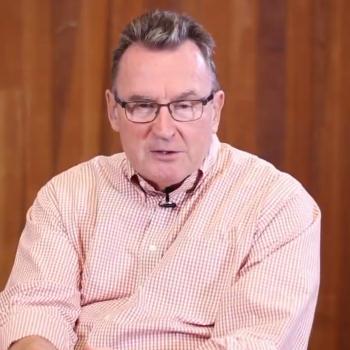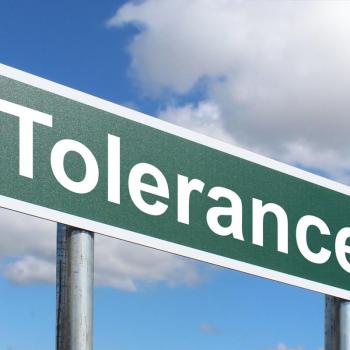Those who’ve read my about page, or have been reading this blog for long, know that because of my positive experiences with the Church of Jesus Christ, my first response when people try to criticize the Church is to rush to its defense.
This is what happened last week when a few stray bloggers tried to twist devastating news about a sexual assault coming to light into a church conspiracy cover-up. And while I stand by what I wrote, I wondered in the days afterward if it was the best thing to say.
I reached out to Amber Richardson who hosts the podcast “On Sovereign Wings” where she interviews sexual assault survivors connected to the Church to talk about the story and the best ways to respond.
Christopher: Tell my readers about the podcast you’re doing and the project around it.
Amber: ‘On Sovereign Wings’ is especially designed for female sexual assault survivors who are connected to the Church of Jesus Christ of Latter-day Saints. I collaborate with Tasha Diaz, a sex therapist, and Mae Warner, an event planner.
Together we produce episodes and in-person events for our listeners. When I’m not recording Tasha’s insights or staging events with Mae, I’m interviewing survivors. Capturing and broadcasting their stories is my speciality and what I enjoy doing most within ‘On Sovereign Wings.’
What inspired you to start the project?
I also work as a producer for a YouTube series called “Splitting the Sky,” which is now nearing completion. We’ve had quite a number of women reach out to us and ask to be interviewed over the lifespan of the project. Exactly half of those women had stories about sexual assault that they wanted to share.
In conjunction with the #metoo movement, this occurrence made me realize that sexual assault is just as prevalent inside the Church as it is outside. I felt that someone needed to create a bridge between the resources outside the Church and the conditions of faith within it because my small sample size told me that there was a great need.
If you were to generalize, what are some ways being in the church has helped the survivors you’ve interviewed?
I would say that the survivors I’ve interviewed so far have a base of faith in place that has played a major role in their healing. In this case, I define faith as the belief that difficult things can be transcended or the belief that difficult things can one day make sense. That faith is a great gift, and I believe the Church can and does offer it to its constituents. That has certainly been true in my case.
On the other side, what are ways being in the church has complicated or made their experiences worse?
This is the best analogy I can think of to describe an experience that seems to be all too common among sexual trauma victims within the Church. It’s imperfect, but hopefully communicative.
Imagine that you had been struck by a drunk driver. You were hurt pretty bad. You ended up hospitalized and perhaps your ward, maybe even your bishop, came to visit you in that hospital room. Now let’s imagine that nobody in that room could see you bleeding. Can you imagine how isolating that would be? It’s especially complicated when your bishop, this man who is supposed to represent the greatest of healers, is completely blind to your trauma. 
In this scenario, can you imagine how absurd and premature it would be if your bishop counseled you to forgive, or went digging for some evidence that you were at fault for what happened to you? This general blindness to this specific kind of trauma (which is extremely prevalent in Utah where 1 in 3 women experience sexual assault as opposed to 1 in 4 women nationally) compounds the healing process and makes it very hard to give voice to your experience, as a survivor.
What are things individual members of the church can say or do to be part of the solution and not add to the problem?
This topic breeds defensiveness in almost everyone. You might feel defensive because you have trauma you haven’t processed yet and hearing someone else’s story is triggering your own. Or you might feel defensive because you are perceiving an attack on your sex, on the Church, or perhaps even on yourself in some inadvertent way.
I would say, if you are feeling defensive take a moment and ask yourself, “Why? What do I need to process here?” If you’re uncomfortable doing that, then perhaps it would be wise to respectfully step back from the situation. It’s so much better to tell someone, “I don’t know what to say,” than it is to say something that might deepen divides and worsen pain.
This came on from the news that Sterling van Wagenen confessed to sexual assault in the early nineties. How’d you respond to that news?
You know, it made me sad initially. I was sad because I knew how many shockwaves it was going to send out in so many different directions; how much divisiveness it would cause. Unnecessary divisiveness, in my opinion.
Why does this topic create divisiveness? It seems like it should be easy for a group as keen on commandments as Latter-day Saints to uniformly condemn sexual assault and comfort its survivors. Why isn’t it? And what can we do to overcome those challenges?
I’m really oversimplifying things here but sexual assault oftentimes boils down to a “he said/she said” scenario. In a culture where men are given more social power than women (or children or other vulnerable populations) we often have an implicit bias against victims.
Perpetrators will capitalize on that. And it’s not always because they are “bad people.” If only things were so simple. In the same way that victims often take decades to process their trauma, perpetrators do too. It’s an equal weight, and actually, for perpetrators, it might be more severe. When perpetrators change the story or lie to discredit their victims they are usually doing it to escape consequences, but also to run from themselves.
Can you imagine facing yourself after doing something like this? We cannot help perpetrators if we continue to believe and preach that they are monsters. Instead, we should look inward and find the strains of our culture and doctrine (and the strains of their lives) that are contributing to the unhealthy sexuality that breeds this possibility in people.
We should also (whenever possible) believe survivors. Believe that they are giving voice to their trauma to protect others and themselves and to create healing for themselves.
Ultimately it comes down to we as a people seeing what we want to see. It can be easier to accept that a victim is lying or crazy than it is to accept that a perpetrator you know and trust is “a monster.” When a perpetrator betrays a victim he betrays a whole community. And many members of that community would rather the victim was misled than face their own pain at this betrayal.
Perhaps the greatest promise of the gospel is forgiveness of sins. How can we maintain the importance of forgiveness without making the church unsafe or devaluing survivors?
We need to recognize that forgiveness and reconciliation are two very different things and that while God may require all men to forgive he does not require all men to reconcile.
In the drunk driver victim analogy, as things currently stand it often feels like all those visitors who came to your hospital room run to rally around the man who caused the accident, while being blind to your pain. I believe our first priority should be the victim, just the same way it should be if we were dealing with a car accident.
On the part of the victim, forgiveness means saying, “You no longer owe me anything.” It’s basically letting go of any control you might want to preserve after being hurt so personally and deeply. A victim might be ready to forgive their perpetrator years before the perpetrator is ready to forgive themselves. And until the victim has substantial reason to believe that the perpetrator is safe and changed, there is no reason for that victim to open any part of their life to that perpetrator again.
For some reason, we like to rush this process. Again I think it is an intolerance to pain on behalf of the community. We want the perpetrator to be forgiven and we offer it prematurely before the perpetrator has identified the root issue that blossomed into this destructive act.
And we also pressure victims to forgive before they are ready. We don’t need to do that. We need to trust God more. God can handle this. If anything, I wonder if dishing out more consequences (rather than false forgiveness) to perpetrators would help them repent faster! It’s certainly a travesty when we ostracize the victims in favor of the perpetrators.
You mentioned earlier, defensiveness. Because of my experiences with the Church, my instinct is always to defend it. Why would that be harmful in a situation like this?
That’s a great question!
I take a pretty pragmatic approach to this. The Church is not perfect, right? We might sometimes refer to ourselves as Zion, but if we truly were, well we know what

happened to Zion. And last I checked the Church hasn’t been taken up to heaven on a cloud! That might sound a bit tongue-in-cheek, but it’s not a bad barometer. We still have work to do.
Actually, all this reminds me of a prophecy in the Book of Mormon. 2 Nephi 30: 17-18. “There is nothing which is secret save it shall be revealed; there is no work of darkness save it shall be made manifest in the light . . . and Satan shall have power over the hearts of the children of men no more, for a long time.”
When we remember that this is all part of the plan, it can curb our instinct to react with defensiveness
As for your question, for many people, the Church is in err. And that is a truth for many survivors that has deep deep roots. So when we react with defensiveness it shuts the survivor down. We don’t want to do that. Because we need their stories, so we can figure out how to improve.
What are things someone like me, who hasn’t had personal experience with sexual assault, could productively add to this broader conversation?
More questions. More listening.
What are other ways for faithful members of the church to understand, contextualize, and process news like this?
Oftentimes members who are branded “unfaithful,” left because they experienced some kind of hurt or pain within the Church that they didn’t know how to contextualize. This is a very common story, especially in the circles I run in.
I think faithful members of the Church can view these difficult stories as opportunities to broaden their hearts and their capacities. If God truly is omniscient and can see everything, and we are here on a quest to become more like God than we can lean into these stories and ask to understand them as He (and She) does.
There will be growing pains; there always are, but we will actually be better disciples of Christ in the long run if we can make space for these stories within our hearts. Our individual hearts have to change before our pews will become a place of safety and healing for survivors and perpetrators alike.
Anything else you’d like to share with my readers on this topic?
Bono (of U2 fame) once did an interview where he said, “We have a hunch that God is not all that into advertising.” He argued that the Church doesn’t need to be advertising for God because “the  creation screams God’s name.”
creation screams God’s name.”
While this is an artist’s take on how to make Christ-centered art I think it also has application to this conversation. We don’t need to worry about what people will think about the Church, as these stories come to light. We don’t need to worry about what the opponents of the Church will say or how they will react. At least I don’t think we do. Let God handle that.
And while we’re letting God handle that, we should probably also trust the promise of the Atonement. If Christ truly descended below all things that means he went lower than the pain of sexual assault. He knows better than victims and perpetrators how heavy, life-shattering, and destructive this all is. When we try to cover up these stories in an effort to eschew our own pain, we are in effect, forsaking the Savior. And I don’t think we should be doing that either.
To learn more about “On Sovereign Wings” check out their Instagram












